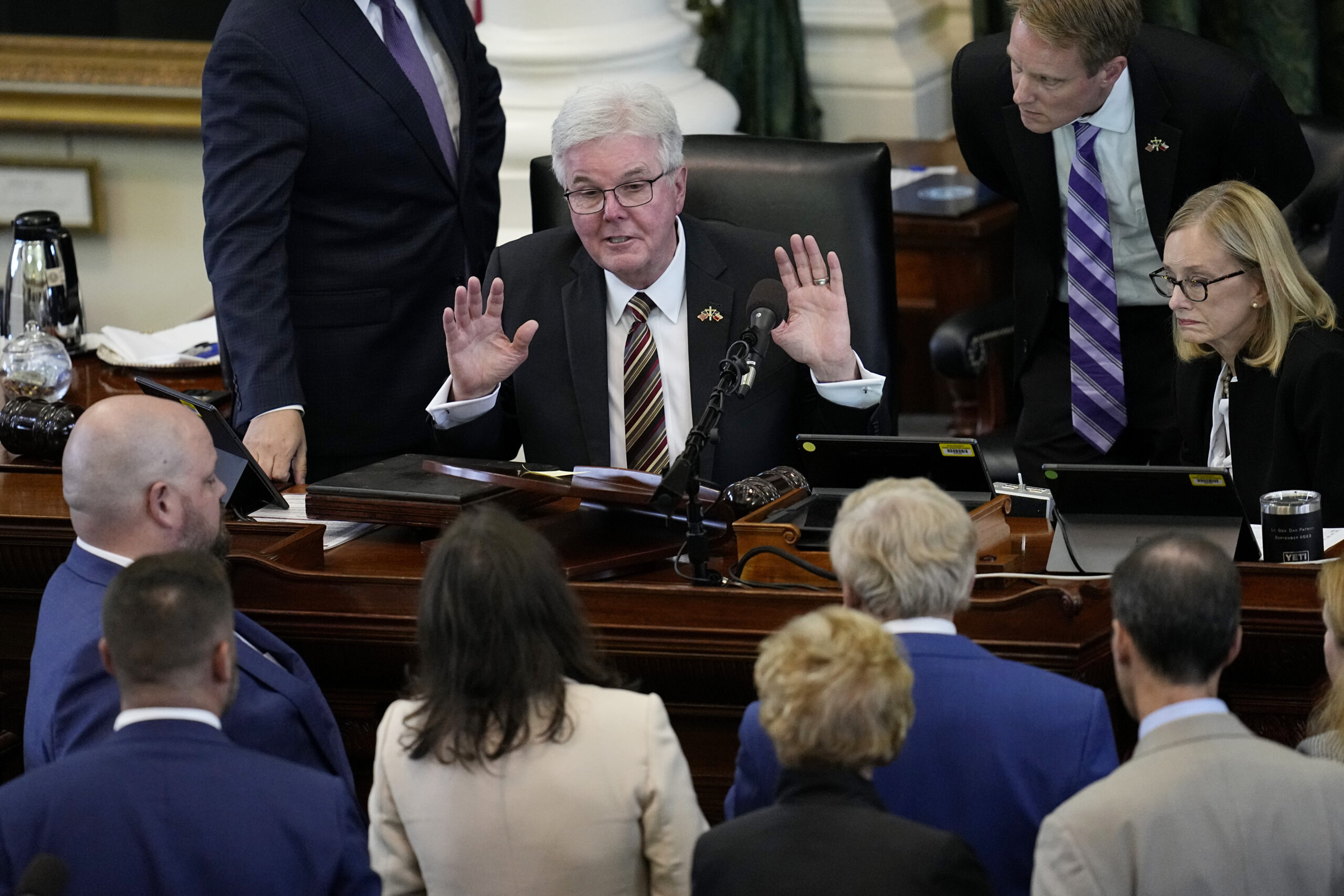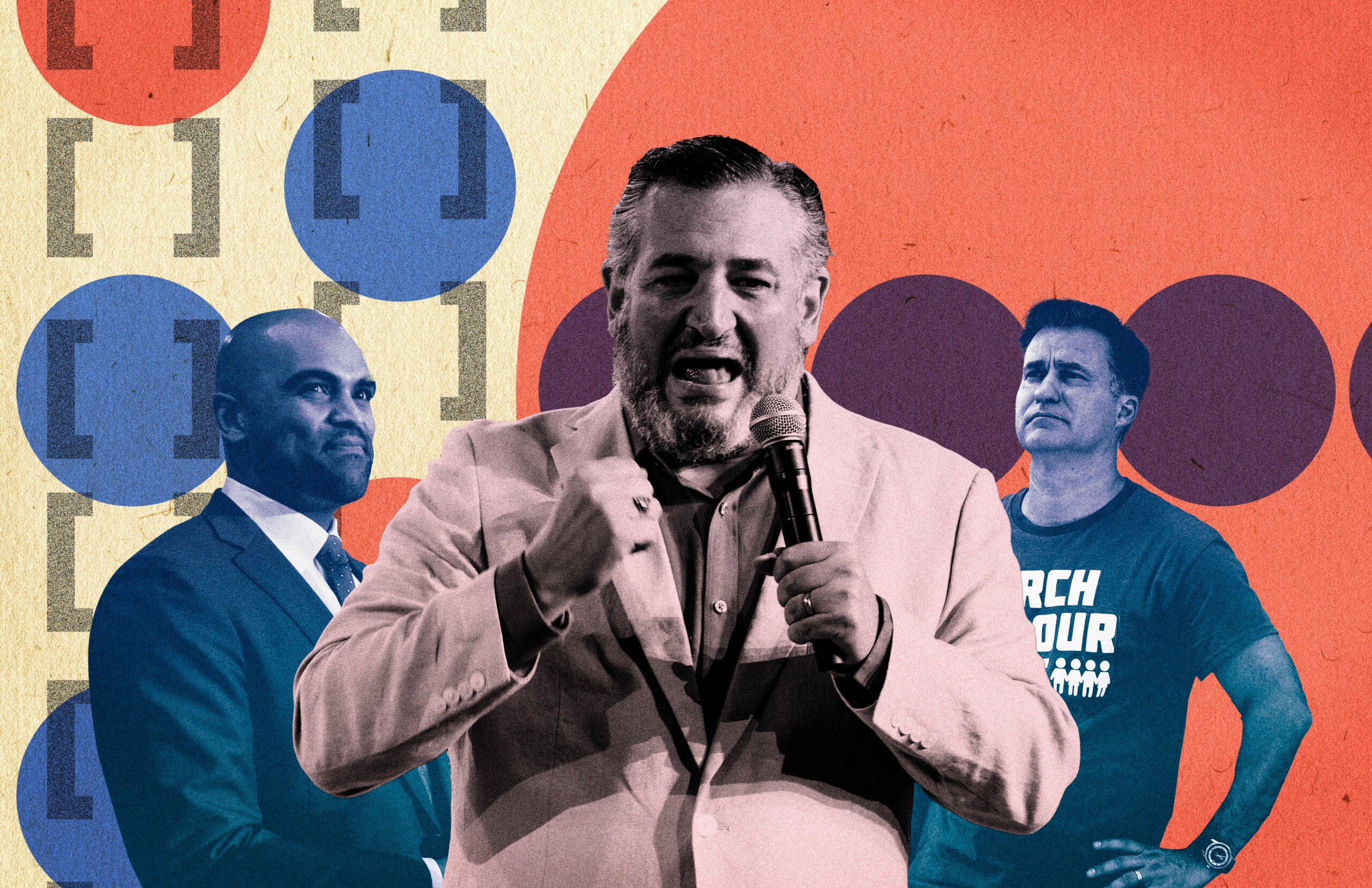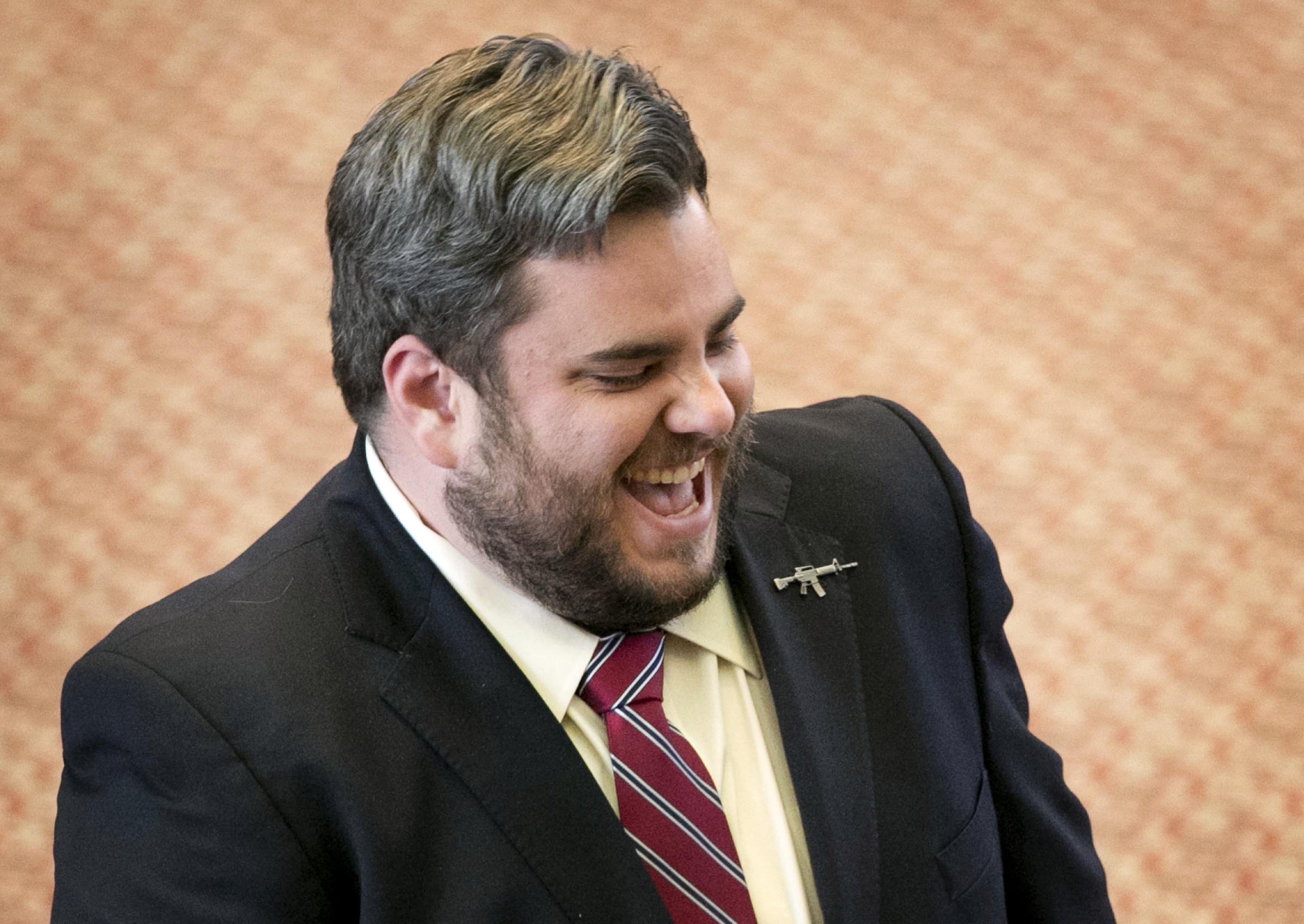
Dan Patrick: Judge, Jury, Executioner?
The long arm of the lieutenant governor reached far into the Paxton impeachment saga.

A version of this story ran in the November / December 2023 issue.
Part of our coverage of the impeachment of Ken Paxton.
A hurt dog hollers and, in Texas politics, none hollers louder and longer than Lieutenant Governor Dan Patrick.
There’s no greater example of this than the way Patrick has responded to criticism of how he presided over the Senate impeachment trial of Attorney General Ken Paxton, which ended with 16 GOP senators delivering an acquittal. Patrick’s detractors have accused him of being judge, jury, and executioner and of tipping the scales in favor of Paxton, then attacking those who dared accuse him.
Patrick did what he always does in the face of dissent: summoned his sanctimonious outrage and went on the offensive against any and every detractor and against each and every slight or critique, no matter how minute.
The lite guv viewed the impeachment proceedings personally, as a period that would define his legacy in the pantheon of Texas history—and rightfully so. This was only the second time a statewide elected official had been impeached, and under the Texas Constitution as the president of the state Senate, he was tasked with presiding over this historic trial as de facto judge.
Patrick says he spent the three months between the House’s impeachment and the start of the Senate trial pulling back from his political role to comb through historical records of prior impeachments in Texas and schooling himself on how to be a judge. His son, Ryan Patrick, a Trump-appointed former federal prosecutor, put him through “a pretty good boot camp,” and counseled him that the best judges don’t talk much, let both sides present their cases, and gently intervene when the opposing counsels start arguing with each other.
He also brought on a former state appeals court judge to serve as his personal advisor on the dais. Patrick started off the trial looking uneasy, somewhat deferential to the high-powered and notorious white-shoe lawyers arguing before him. But he soon found himself in typical form, running the trial in his ironclad style—confidently ruling on the straightforward “balls and strikes” objections of hearsay, leading witnesses, and speculation and sagely consulting with advisors on more complex matters.
How could anyone suggest that Dan Patrick had been anything but a majestic fount of impartiality, ethics, and wisdom beyond reproach?
How could anyone suggest that he—this conservative talk radio host-turned-judicious statesman—had been anything but a majestic fount of impartiality, ethics, and wisdom beyond reproach and that he or the noble Texas Senate could be susceptible to political influence?
Seconds after uttering the final words affirming Paxton’s acquittal and closing the trial, Patrick took a point of personal privilege to read into the historical record his personal account of the trial, beginning with a seemingly somber accounting of how he and the Senate approached the historic proceedings and how he had been “unusually quiet” the past few months.
Then came the Dan Patrick we all know, as he dropped the pretext of impartiality and launched into a personal and vitriolic attack against the Texas House, expressing disgust that it had ever handed the upper chamber what he effectively likened to a steaming pile of political shit unworthy of the platter on which it was served.
“The speaker and his team rammed through the first impeachment of a statewide official in Texas in over 100 years while paying no attention to the precedent that the House set in every other impeachment before,” Patrick said. He pledged to order a state audit of the full tab that state taxpayers footed for the House’s hapless witch hunt and to push for constitutional reforms to prevent a similar railroading in future years.
Detractors—from House Speaker Dade Phelan, his chamber’s impeachment managers and their highfalutin lawyers to the Wall Street Journal editorial board and some Democratic state Senators—have since accused Patrick of rigging, in various ways, the outcome of the trial.
“His tirade disrespects the Constitutional impeachment process afforded to us by the founders of this great state,” Phelan wrote in an op-ed for his hometown Beaumont Enterprise. “The inescapable conclusion is that today’s outcome appears to have been orchestrated from the start, cheating the people of Texas of justice.”
“The inescapable conclusion is that today’s outcome appears to have been orchestrated from the start, cheating the people of Texas of justice.”
The House’s prosecution team claimed that it had underestimated the influence that politics—and Patrick—had on the verdict. Lead prosecutor Rusty Hardin called Patrick’s speech “the most classless political moment that, in my life, I’ve ever experienced.”
“You cannot match impartiality with that speech at the end,” he said. “On some rulings, looking back, you realize what was going on.”
The House team pointed to several key instances in which Patrick sided with the defense to block some of the prosecution’s evidence and also claimed the lieutenant governor influenced the decision not to make Paxton’s mistress take the stand.
Some senators claimed Paxton’s acquittal wasn’t nearly as close as it seemed—with many Republicans considering conviction on some charges until it became clear that the votes weren’t there. Kelly Hancock, one of two Republican senators who voted to convict Paxton, said that the Senate came “extremely close” to convicting Paxton at one point during deliberations but that some flipped their votes late Friday or early Saturday. He declined to name any names.
“If it was a civil court standard, I’m sure he would’ve been convicted on this versus, you know, beyond a reasonable doubt, the death penalty standard,” Senator Drew Springer, a Republican from rural North Texas, told a local newspaper. Senator Sarah Eckhardt, an Austin Democrat, walked out of the Senate chambers in the middle of Patrick’s post-trial diatribe and later issued a statement criticizing the way Senate rules were developed, how key in-trial decisions were made behind closed doors, Patrick’s inconsistent evidentiary rulings, and overall time constraints that cumulatively limited the scope of the trial.
One of the main strikes against Patrick has been the $3 million—one-part cash, two-parts loan—that his campaign took before the trial from Defend Texas Liberty, the hard-right enforcement PAC financed by the Christian nationalist megadonors Tim Dunn and Farris Wilks, which had threatened retribution against any GOP legislator who showed themself to be an anti-Paxton turncoat.
In typical fashion, Patrick has responded to his critics with long statements on social media and through a relentless media blitz across major TV news stations, conservative talk shows, and podcasts. He even produced his own PBS-style “behind the scenes” look at the historic impeachment—featuring him in conversation with former top aide Shelly Sylvester and three allied senators. He portrayed the criticism as sour grapes while he believed himself to be a shining example of fairness and justice. “It’s a bunch of losers who are crying now in their beer” because they couldn’t prove their case, Patrick said on one podcast.
As for the big money he took from the pro-Paxton group, that was all in the course of ordinary fundraising, and, he claimed, he took just as much from those aligned with the mainstream Republican group Texans for Lawsuit Reform, which Paxton’s defense claimed was behind the conspiracy to oust him from office.
Upon his acquittal, Paxton promised retribution against those who sought to take him down, and Patrick now has common cause with Paxton against many of the same forces who dared cast aspersions on his immaculate trial.



